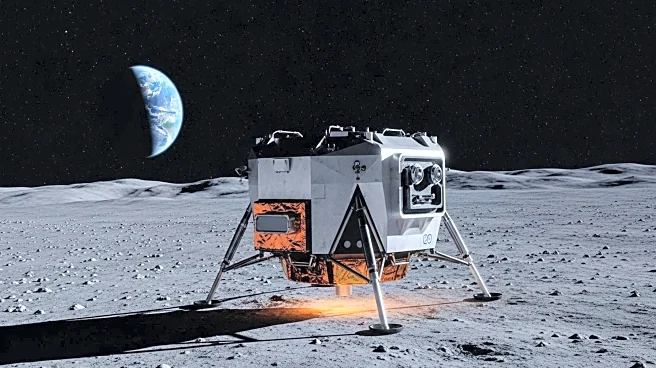What is the story about?
What's Happening?
NASA has announced plans to launch its first crewed lunar mission in over 50 years, scheduled for February 2026. This mission, part of the Artemis program, aims to send four astronauts on a 10-day journey around the moon. The crew will include commander Reid Wiseman, pilot Victor Glover, and mission specialists Christina Koch and Jeremy Hansen. The mission will utilize the Orion capsule and the Space Launch System (SLS) rocket, launching from Kennedy Space Center. This follows the successful unmanned Artemis I mission in 2022, which tested the SLS/Orion system. The Artemis II mission is a precursor to a planned moon landing in 2027.
Why It's Important?
The Artemis program represents a significant step in U.S. space exploration, aiming to establish a long-term presence on the moon and eventually send astronauts to Mars. This mission will not only advance scientific discovery but also maintain American leadership in space exploration. By landing the first woman and person of color on the moon, NASA is setting new benchmarks in diversity and inclusion. The program also involves collaboration with commercial and international partners, potentially leading to economic benefits and inspiring a new generation of explorers.
What's Next?
If successful, the Artemis II mission will pave the way for a moon landing in 2027. NASA plans to use the knowledge gained from lunar exploration to prepare for future missions to Mars. The agency is working to accelerate preparations and operations, with the support of President Trump's administration, which has emphasized the importance of returning to the moon amid a renewed global space race.
Beyond the Headlines
The Artemis program's focus on establishing a sustained presence on the moon could lead to long-term capabilities in space exploration. This approach contrasts with the Apollo program's short-term goals and could have implications for future missions to Mars and beyond. The program's emphasis on diversity and international collaboration may also influence global space policy and inspire other nations to pursue similar goals.

















